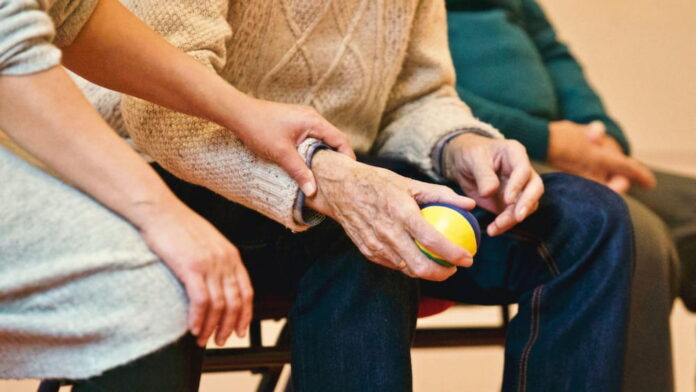Home care is specific care given to people who are aging in place, disabled, recovering from surgery, and chronically ill. Its main goal is to provide services to individuals who have special needs and require medical attention right in the comfort of their homes.
Research shows that patients heal faster at home than at any medical facility. Additionally, in-home care is usually less expensive than its other counterparts, such as hospitalization or assisted living.
In addition to healing benefits and cost-effective care, home care offers different services for every distinct need of each care recipient. These services include personal care, household chores, money management, and health care. Let’s talk more about these services here.
Non-Medical Care
This type of home care service goes by different names. For example, people call it “personal care and companionship,” “homemaker care,” “home health aide services,” “senior care,” “companion care,” or “assistive care.”
While many home care recipients and providers call it differently, this home care type, i.e., usually offered by many non-medical senior care franchises only does one specific thing: to accompany the care recipient—the caregiver services like how the family members will do.
In general, the service is associated with everyday activities, such as:
- Self-care assistance – such as using the toilet, bathing, or dressing
- Safety assistance – such as ambulation, fall prevention, wheelchair transfer (e.g., from wheelchair to bed or toilet bowl and vice versa)
- House chores assistance – such as planning or making meals, doing the laundry, light housekeeping
- Escort/companionship – such as escorting the recipients to pay bills, run errands, or hang out
- Round-the-clock supervision – especially for those who have Alzheimer’s disease or dementia
Most of the caregiver’s tasks are to provide personal care to the recipient. Therefore, the service must be ongoing based on the schedule in favor of the care recipient’s needs. Depending on their status, the service can be 24/7 and live-in care. It’s necessary, especially for Alzheimer’s disease or dementia patients who need round-the-clock supervision.
Further, non-medical care service doesn’t have to be prescribed by a doctor. However, in terms of medication, the caregiver should know what the recipient’s attending physician has advised. Also, the caregiver should be aware of the recipient’s health care provider and insurance in case they need immediate medical care.
Private Duty or Nursing Care
Nursing care often needs to stay 24/7 in the recipient’s house as it will provide care for those with specific medical needs. Hence, they’re called private duty nurses. They’re going to provide medical-related services, so they have to follow a doctor’s prescription.
Like non-medical care, this type of home care also has different names, including catastrophic care, ventilator care, or catastrophic care. As these names imply, the private nurse has to provide services for people suffering from various diseases.
It may include giving service to those who have traumatic brain injury (TBI), amyotrophic lateral sclerosis (ALS), stroke, spinal cord injury (SCI), multiple sclerosis (MS), and many more. These services may include the following:
- Administering medications
- Vital signs monitoring
- Catheter care
- Feeding tube care
- Ventilator care
- Tracheostomy care
- Ostomy/gastrostomy care
Everything mentioned above should be provided in a timely and extended period of time. That’s why most caregivers should give home-based skilled service, often hourly and long-term nursing care. Other caregivers, especially those who have their own families to take care of, can do shifting instead of doing in-home care, though.
Home Health Care
In contrast to nursing care, home health care provides short-term care primarily to prevent or recover from hospital stays, injuries, or illnesses. Sometimes, the doctor visits the patient themselves. This care offers the following services:
- Physical therapy
- Speech-language pathology
- Occupational therapy
- Home health aide services
- Short-term nursing services
- Medical social work
If the attending physician isn’t available, a medicare-certified home health caregiver can give the physician-directed service instead. However, unlike non-medical or nursing care, they aren’t going to stay in a recipient’s house for a long time. Hence, this care is commonly called visiting nurse services or intermittent skilled care.
The service given by specialized clinicians will mostly last for at least an hour, depending on what kind of consultation. The care will be on a short-term basis and will continue until the patient’s primary medical goal is achieved.
Does Insurance Cover Home Care Services?
In-home care services are typically free out of charity and community services. Some insurance coverages can also cover them, but not all. One sample exclusion is PPO meaning Preferred Provider Organization. It’s a health plan that contracts with medical providers who’ll provide services at reduced rates. However, these services are usually offered at a medical facility, not at home.
Final Thoughts
In choosing the best home care service, it’s best to undergo a professional consultation. Ask your patient and their attending physician about the medically best and safest arrangement for a home care service. There are many home care providers in almost every state nowadays, but not all provide excellent services. Hence, be sure to do your part in research to ensure the safety of your loved.
Read Also
- The Role of Ingredients in Your Skincare: What to Look ForSkincare works best when you understand what goes into the products you use daily. Ingredients form the foundation of every formula and determine how the skin reacts over time. Each cream, cleanser, or serum has its own role, determined by its ingredients. Learning what to look for helps you pick products that help skin and… Read more: The Role of Ingredients in Your Skincare: What to Look For
- Your Guide to Finding a Trusted DentistChoosing the right dentist in Sandgate or your area is crucial for maintaining good oral health and achieving a confident smile. With countless dental practices to choose from, patients may find the task daunting. Data from the American Dental Association indicates that there are over 200,000 practicing dentists in the United States, highlighting the importance… Read more: Your Guide to Finding a Trusted Dentist
- Mastery Forge Webinar Platform – Choose Your WebinarWe live in a time when knowledge is literally at your fingertips. You no longer have to go on long courses, wait for free places or adapt to a rigid schedule of classes. All you need is the Internet, a little willingness and you have access to training courses conducted by experts from all over… Read more: Mastery Forge Webinar Platform – Choose Your Webinar
- Transforming Patient Care with Professional Healthcare Transcription ServicesIn today’s fast-paced healthcare environment, the need for precise and timely documentation cannot be overstated. Accurate documentation is not merely an ancillary task; it is a core element of delivering high-quality patient care. The ability to maintain compliance with regulations, enhance operational efficiency, and ensure the integrity of patient records has never been more critical.… Read more: Transforming Patient Care with Professional Healthcare Transcription Services
- Achieving a Defined, Balanced Facial Contour in SingaporeA well-defined jawline and a gently tapered lower face — commonly referred to as a V-shaped face — is a look many people aspire to. In Singapore’s beauty and aesthetic scene, treatments that help refine facial contours have grown in popularity as more individuals seek subtle, natural enhancements that boost confidence and balance facial features.… Read more: Achieving a Defined, Balanced Facial Contour in Singapore






